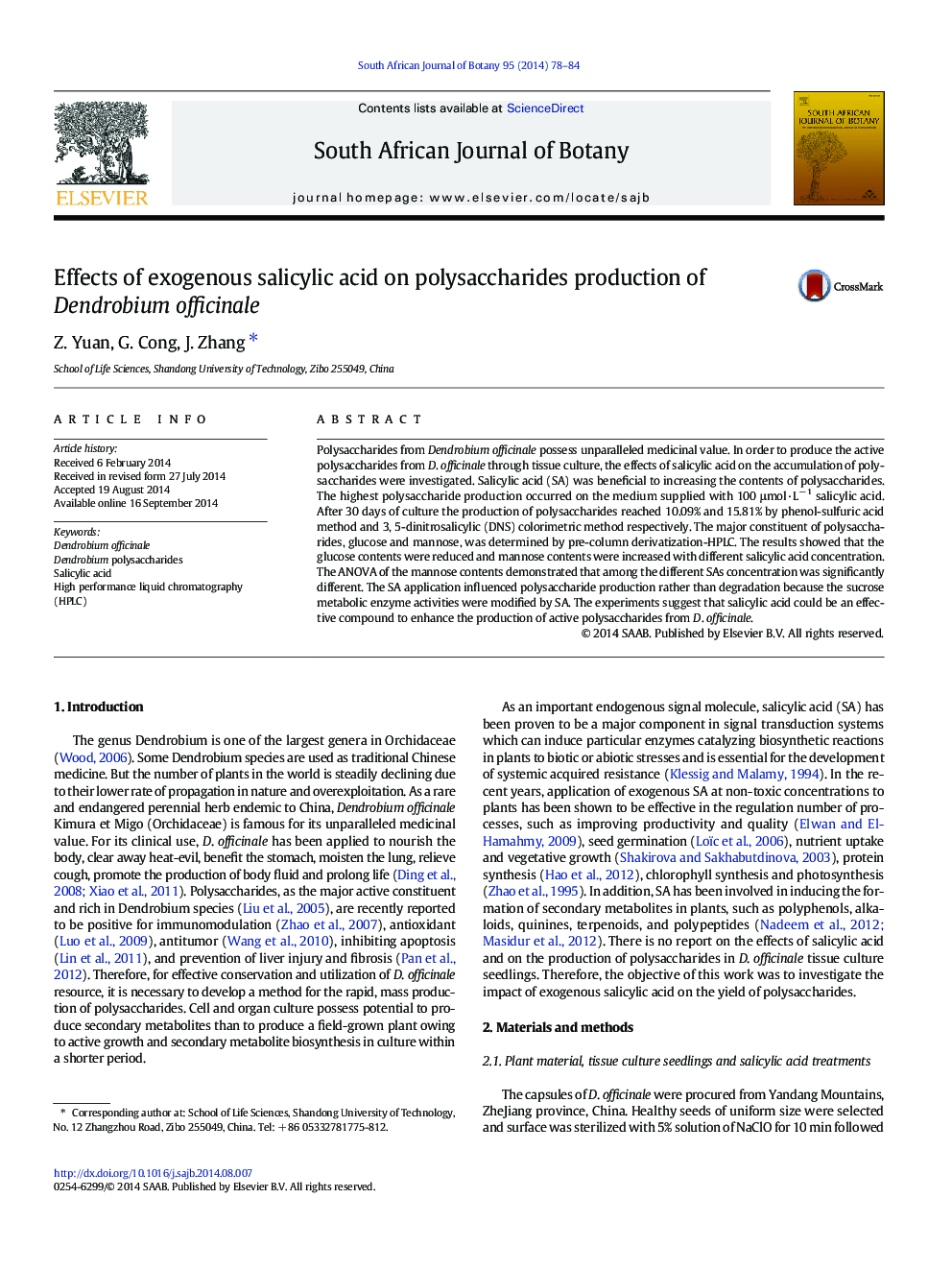| Article ID | Journal | Published Year | Pages | File Type |
|---|---|---|---|---|
| 4520639 | South African Journal of Botany | 2014 | 7 Pages |
•Salicylic acid application influenced polysaccharides production rather than degradation.•The sucrose metabolic enzymes activities were modified by salicylic acid.•High concentration inhibited the synthesis of polysaccharides and enzymes activities.•The monosaccharide compositions of the polysaccharides were investigated by HPLC.
Polysaccharides from Dendrobium officinale possess unparalleled medicinal value. In order to produce the active polysaccharides from D. officinale through tissue culture, the effects of salicylic acid on the accumulation of polysaccharides were investigated. Salicylic acid (SA) was beneficial to increasing the contents of polysaccharides. The highest polysaccharide production occurred on the medium supplied with 100 μmol·L− 1 salicylic acid. After 30 days of culture the production of polysaccharides reached 10.09% and 15.81% by phenol-sulfuric acid method and 3, 5-dinitrosalicylic (DNS) colorimetric method respectively. The major constituent of polysaccharides, glucose and mannose, was determined by pre-column derivatization-HPLC. The results showed that the glucose contents were reduced and mannose contents were increased with different salicylic acid concentration. The ANOVA of the mannose contents demonstrated that among the different SAs concentration was significantly different. The SA application influenced polysaccharide production rather than degradation because the sucrose metabolic enzyme activities were modified by SA. The experiments suggest that salicylic acid could be an effective compound to enhance the production of active polysaccharides from D. officinale.
